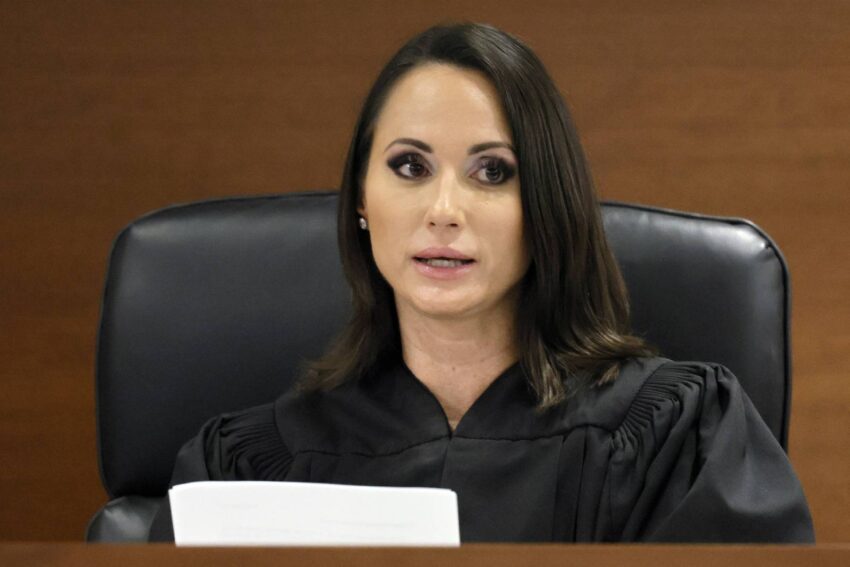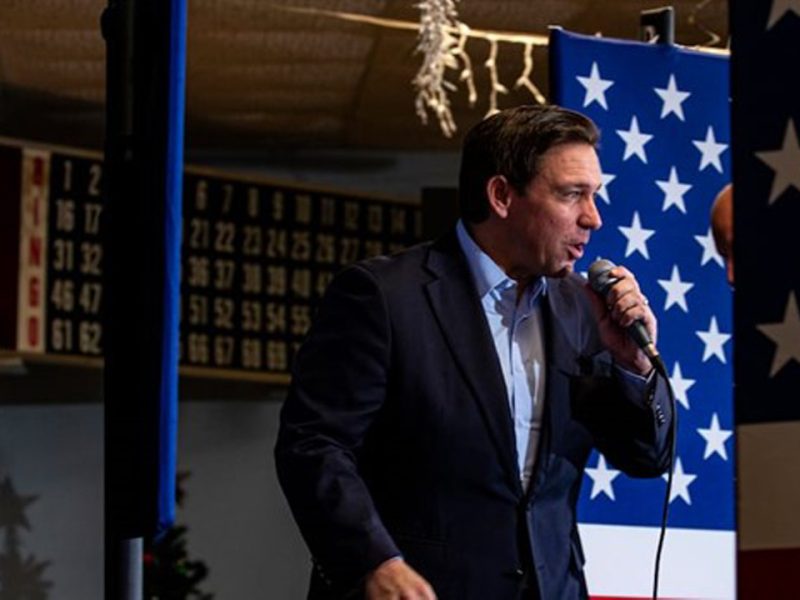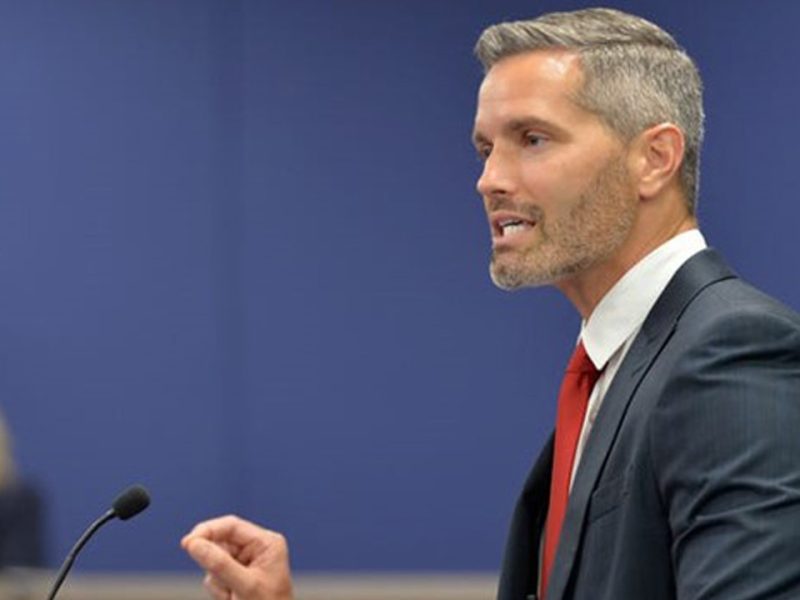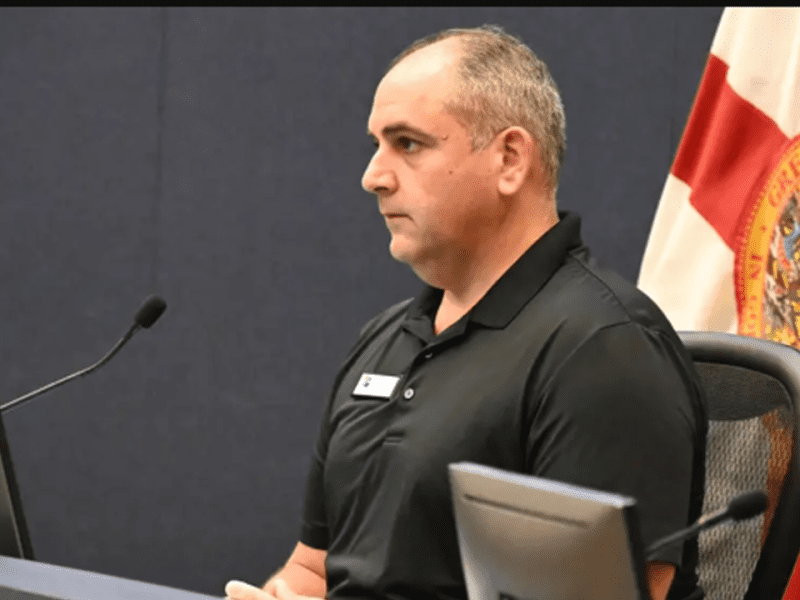
Jury offers mercy, rejects death sentence on all 17 counts for Parkland school shooter
South Florida Sun Sentinel | By Rafael Olmeda, Brittany Wallman, Angie DiMichele, Susannah Bryan and Lisa J. Huriash | October 13, 2022
FORT LAUDERDALE — After a heart-wrenching three months reliving one of America’s most heinous crimes, a jury Thursday showed mercy to the Parkland school shooter, rejecting a death sentence and recommending he spend life in prison.
The recommendation is binding, and he will be formally sentenced Nov. 1. Broward Judge Elizabeth Scherer does not have the discretion to impose the death penalty, now that at least one juror found that the life of school shooter Nikolas Cruz should be spared. The jury deliberated for just seven hours.
The decision unleashed a torrent of emotion in the packed courtroom, where many victims’ family members have sat riveted — and sometimes in tears — since the beginning of the sentencing trial.
Killed in the Feb. 14, 2018, shooting were Luke Hoyer, 15; Martin Duque, 14; Gina Montalto, 14; Alex Schachter, 14; Alaina Petty, 14; Alyssa Alhadeff, 14; Nicholas Dworet, 17; Helena Ramsay, 17; Chris Hixon, 49; Carmen Schentrup, 16; Aaron Feis, 37; Scott Beigel, 35; Meadow Pollack, 18; Cara Loughran, 14; Joaquin Oliver, 17; Jaime Guttenberg, 14; and Peter Wang, 15.
Luke’s mother, Gena Hoyer, sobbed into her husband’s arms as they walked out of the courtroom.
Max Schachter, whose son Alex was murdered, said on Twitter that Cruz got “everything he wanted. While our loves ones are in the cemetery.”
Lori Alhadeff, who won election to the Broward School Board after her daughter Alyssa was murdered, said the outcome Thursday “just makes the fire inside us even want to fight harder for change. And know that we have to … work so much harder, because this cannot happen.”
Tony Montalto, whose daughter Gina was shot to death, was irate over the jury’s decision and sat shaking his head throughout the lengthy reading by the judge.
”She should not have been extinguished by this monster,” he said after the verdicts were read. “Gina deserved better than she got. She deserved better.”
Debbi Hixon, whose husband Chris was murdered, said she was “devastated and shocked,” and felt it rendered Cruz’s life more important than those whose lives he took.
“I have a son with special needs. I have a son that checked a lot of those boxes that the shooter did as well,” she said. “my son’s not a murderer. My son is the sweetest person you could ever meet.”
On the evidence, the prosecution made its case, the jury found unanimously. But at least one juror, and all it took was one, was persuaded by the defense plea for mercy.
Cruz’s guilt was never in question. He confessed to taking 17 lives at Marjory Stoneman Douglas High School. The jury of five women and seven men found that he deserves the mercy he did not show when he pulled the trigger and ended their lives.
Broward defense lawyer Elias Hilal, who is not associated with the case, said the death penalty in Broward County was effectively overturned. “Nobody in this county can ever get the death penalty again,” he said. “These poor kids were killed in a cold-blooded murder by a monster, yet this killer gets to sit in jail while their parents go home to an empty bedroom.”
The decision came two days after a separate jury recommended death in the case of Peter Avsenew, convicted after a retrial for the murders of Kevin Powell, 52, and Stephen Adams, 47, a Wilton Manors couple who took him into their home during the 2010 holiday season.
Thursday’s decision is unlikely to bring real closure to anyone involved. It won’t return the 17 lives that were lost, the children whose only crime was going to school on Valentine’s Day, or the teachers who tried to save them. It won’t remove the scars from the victims who survived the attack with shrapnel lodged in their skin.
:quality(70)/cloudfront-us-east-1.images.arcpublishing.com/tronc/633HDAQVRFC3FOLLGVQQW34R3I.jpg)
It won’t erase the memories of dozens of children who made their way out of the building by stepping over the bodies and blood of their slaughtered classmates.
The jury’s decision won’t reopen the doors of the 1200 building at the Parkland high school campus. It won’t mop the bloodstains from the floors and walls, restore the shattered glass to the classroom doors, or complete the unfinished assignments that were abandoned mid-thought by the terrified students when the firing began.
But it ends the only mystery associated with the case — is this the “worst of the worst” scenario lawmakers envisioned when they made the death penalty legal again in Florida?
Cruz, 19 when he committed the murders, offered almost immediately to plead guilty in exchange for a life sentence. The Broward Public Defender’s Office, which represented him, argued repeatedly that accepting life over death would avoid the spectacle of a trial and the trauma of introducing the evidence.
Prosecutors rejected the offer, refusing to allow the defendant to choose his own fate.
Over the course of four years, the public learned how many times Cruz was identified as a safety threat, and how little was done to address it.
While in custody, Cruz attacked a detention deputy who was guarding him, leading to an additional criminal charge that served as a barometer of how potential jurors would feel about deciding his fate. That trial was scheduled to begin last year and had reached the jury selection phase. Potential jurors broke down in tears when they saw the defendant, and the knowledge that they were not there to deal with the Parkland shooting was of little comfort.
Cruz stood before a packed courtroom on Oct. 20, 2021, and addressed the judge in a rambling monotone that sounded like he was reading from prepared notes. He wasn’t. “I am very sorry for what I did and I have to live with it every day and that if I were to get a second chance I would do everything in my power to try to help others,” he said. “And I am doing this for you and I do not care if you do not believe me, and I love you and I know you don’t believe me but I have to live with this every day and it brings me nightmares and I can’t live with myself sometimes but I try to push through because I know that’s what you guys would want me to do.”
Family members of the slain victims greeted his confession with undisguised contempt.
Florida law requires a jury’s unanimous recommendation to sentence a murderer to death. Jury selection began on April 4. In all, nearly 1,800 jurors were screened through fits and starts that pushed the trial’s start date further and further into the summer. In the end, 22 were chosen to sit through the trial. Ten were alternates, unaware that their services would no longer be required once deliberations began.
Testimony began July 18, after prosecutor Mike Satz delivered an opening statement outlining the state’s case. In the weeks that followed, the jury was presented with graphic videos and photographs and heart-wrenching testimony from survivors of the Stoneman Douglas massacre.
The prosecution’s case reached a crescendo the week of Aug. 1, when family members began testifying and jurors walked through the building where the mass shooting occurred.
Throughout the prosecution’s case, defense lawyers barely spoke. There was nothing to dispute, lead defense lawyer Melisa McNeill later told the jury. The defense case sought to separate the crime from the person who committed it, to present Cruz as “brain-damaged, broken and mentally ill,” deserving of a life sentence, but undeserving of death.
Andrew Pollock, whose daughter Meadow was among the murdered, said his mission was to force accountability to the many who failed, whose intervention might have stopped Cruz from becoming a school shooter.
Reached after the verdict, he said he wasn’t invested in that outcome.
“I feel bad for all the parents that wanted the death penalty,” he said.
Parents and family members filled the courtroom, showing confusion and dismay, and shedding tears, as the lengthy jury decisions were read.





